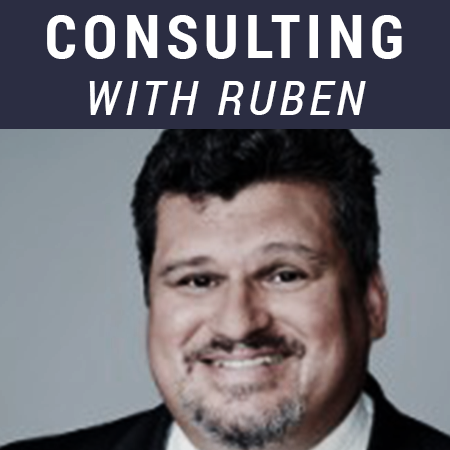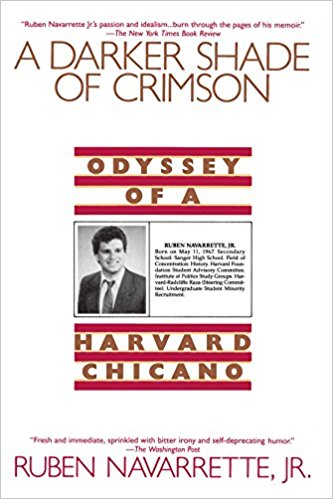I’m not one to back down from a challenge from the likes of Tucker Carlson.
The Southern native has spent much of his life on the East Coast, most of all Washington, D.C. I’ve known him for 20 years, since he wore a bow tie and was considered a moderate who supported immigration and had no beef with multiculturalism.
He was regarded by fellow Beltway journalists as an excellent magazine writer, and a thoughtful chronicler of politics and culture.
That was then, however. The new Tucker — the one with a primetime show on Fox News, a two-book deal worth $9 million, more than 2 million Twitter followers, and about 2.7 million nightly viewers — is not exactly kinder and gentler than the old one.
Quite the opposite. He has become mean, snide, condescending, and hostile to immigration. He most certainly does not see people of different colors and cultures as his equal, and he is not shy about showing it. Most of all, he enjoys tackling sacred cows — then killing and grilling them.
Recently, Carlson — who, it has been shown by media critics and civil rights groups alike, has a strong following among white supremacists — questioned the value of diversity.
Few cows are more sacred. Diversity is something pursued by everyone from the CEOs of Fortune 500 companies to Ivy League admissions officers to government recruiters.
In fact, how’s this for a small world? Achieving diversity in its workforce is also a stated objective of 21st Century Fox, the global media company that owns Fox News and pays Carlson’s multimillion-dollar annual salary.
Still, when it comes to pushing racial hot buttons, it often seems as if Carlson can’t control himself. Thus, he mused:
How, precisely, is diversity our strength? Since you’ve made this our new national motto, please be specific as you explain it. Can you think, for example, of other institutions such as, I don’t know, marriage or military units in which the less people have in common, the more cohesive they are? Do you get along better with your neighbors, your co-workers if you can’t understand each other or share no common values? Please be honest as you answer this question.
Very well. I can be both specific and honest.
First, I have to challenge the ludicrous suggestion that diversity is — for Americans — “our new national motto.” Americans have many national mottos.
We have the one that the Founders left us: “E Pluribus Unum” (“Out of Many, One”). And the one that defines how we feel about immigrants: “There Goes the Neighborhood.” And the one that springs from a nation of victims: “Call My Lawyer!”
Meanwhile, diversity is a desirable goal and a widely acknowledged asset. But it is not a motto, national or otherwise.
Second, I can, in fact, think of many institutions that are diverse and yet quite cohesive. Not in the phony contrived sense that Carlson puts forth — “the less people have in common, the more cohesive they are.” The less of this, the more of that. But plenty diverse and still cohesive.
Yes, in fact, it is true in marriage; if it’s really the case that opposites attract. And it’s also true in the military; the rank-and-file include people of all races and backgrounds, who are Christian, Jewish, and Muslim.
And the fact that members of this group are different doesn’t make it any less cohesive. They still come together as one — around their love of country, commitment to service, and sense of duty.
Also, while I’m touched that Carlson cares so much about whether I get along with my neighbors and co-workers — even if we speak different languages and come from different cultures — he needn’t worry. We all get along fine. We do understand one another, and we have many shared common values — like family, work, sacrifice, faith, patriotism, education, and more.
Finally, America is a magical place where people find commonality even while relishing their diversity. My college roommate — a Connecticut Yankee, Italian-American, and Catholic — told me a story about taking Italian cookies to school for “ethnic day” and being embarrassed that they did not look more like mainstream cookies.
The story rang a bell, because many years earlier my parents had — in Central California — experienced the same discomfort whenever they took tacos to school for lunch.
You see, our differences don’t get in the way of our similarities. Our differences are our similarities.
I was blessed to grow up in a small farm town with friends who were Chinese, Japanese, Vietnamese, Armenian, Portuguese, Jewish, Irish, German, Italian, Filipino, Swedish, and Mexican.
I learned about their cultures, and they learned about mine. Everyone got along. There was no cultural conflict or ethnic strife. And from that, I’d like to think, came empathy and the ability to see things from the point of view of a friend or neighbor.
In fact, I see this dynamic every day in my work. For instance, if I write a column about farming and the labor shortage and include a few lines about the kind of wages farmworkers are typically paid these days, there is going to be a gap in understanding between those who come from the city and others who were raised in the country.
It’s extremely useful to able to communicate with both camps, and you’re only able to do that if you take the time to understand different types of people.
Finally, all of his recent crusading against diversity makes me wonder what Carlson’s day-to-day reality is like. Does he surround himself only with people who look, think, act, and speak like he does? If so, I feel sorry for him. That’s no way to grow, no way to learn.
We all need to challenge ourselves by going outside our comfort zones now and then and exposing ourselves to opinions different from our own. Otherwise, we’ll become soft and predictable and not very bright — suitable for no other employment than, perhaps, a hosting gig on Fox News.





